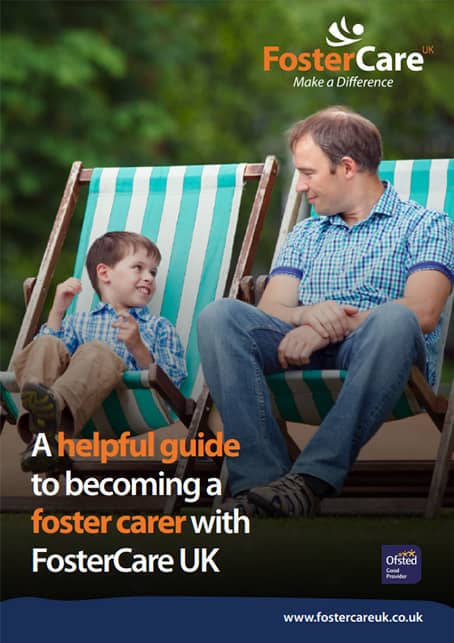


What happens when a child is taken into care?
Benefits of being a foster parent
What is a care leaver?
How to become a foster parent
How to foster a child
What are the foster care requirements
Can I choose who I foster?
Fostering with pets FAQ
How long does it take to become a foster parent?
What is the role of an independent fostering agency?
Fostering a disabled child
Tips for coping when foster placements end
Do foster carers pay tax?
What to expect in a fostering assessment
Common Fostering Challenges and Solutions
What disqualifies you from being a foster carer?
Muslim Fostering
Fostering as a single parent
Can you foster a child with a criminal record?
Can you work and foster?
Top 10 fostering myths
Can I foster if…?
Can I foster and rent?
LGBT Fostering: can I foster if I’m gay
Top transferable skills to become a foster carer
Can you foster with a mental health condition?
Christian Fostering
Sikh Fostering
Cultural Diversity in Foster Care
How to encourage foster children to read
Reasons for a child to be taken into care
Tips for coping with attachment disorders in Foster Children
Fostering vs Adoption
What happens when foster parents get divorced?
What is reunification in foster care?
How to deal with foster child bullying
A guide to the foster care handbook
Guide to fostering young children
Types of self-harm
A guide to fostering teenagers
What are the signs of depression in foster children?
As of March 2023, the number of children in care by local authorities stands at 83,840 across England – which has increased by 2% from 2022. But why are so many young children placed into care? Find out more of the most common reasons for foster care to occur, and what happens when a child is taken into care from our helpful guide.
There are many reasons why social services would need to intervene and place a child or children into care, such as:
There are many different types of neglect that could lead to a child being taken into foster care. This includes:
Abuse comes in many forms, which could lead to a child being removed by social services. Including:
In rare cases, parents can simply abandon their children with no explanation. This could be dropping their child off at a frequently visited destination or to a person they trust, but then never returning. Often, when abandonment occurs, parents will simply leave their child at home for an extended period of time on their own.
If parents or guardians of a child are sentenced to jail, and there is no one who can take care of the child in their absence - alternative care will need to be provided. This often comes in the form of short-term fostering or emergency foster placements.
Both physical and mental illness of a parent can lead them to be incapable of caring for a child. This is likely to lead to either temporary or long-term foster care placements, depending on the extent of the illness.
If the parents or guardians are deceased, and there is no other appropriate adult to care for the child – they would then be placed into the care system.
There are some instances where children may be placed in the care system due to asylum, which has unfortunately left them unaccompanied. This is referred to as Unaccompanied Asylum Seeking Children (UASC).
On some occasions, parents may place their child into foster care voluntarily. The reasons for this could be due to some of the reasons previously mentioned, such as parental illness or a bereavement of one parent. However, voluntarily placing a child into foster care mainly occurs when the parents cannot, or do not want to, care for the child any longer.
It should also be noted that children may need to be put into care due to their own actions, if their parents cannot take care of them or manage their behaviour anymore. This would include:
When a child is placed into the care system, a local authority assesses the child’s situation – determining the level of care required. This care will be to ensure the child is provided with a substantial home where they can be taken care of in a safe and secure environment.
This may be on a short-term basis if the child is able to return to their birth parents, or it could become a more long-term placement if reunification is not likely.
Find out more about who can foster, as well as the different types of foster care available with Foster Care UK today. Our friendly team of experts are one call away on 0844 800 1941 to help answer any questions you may have or to provide more information and guidance around any fostering query.
If you’ve got any questions or would like to find out more about fostering with Capstone, fill out the form below.
An experienced fostering advisor from your local area will then be in touch.

Start the conversation today. Our team of friendly advisors are on hand to answer any foster care questions you may have. We can offer you honest and practical advice that can help you decide if becoming a foster carer is the right path for you.


